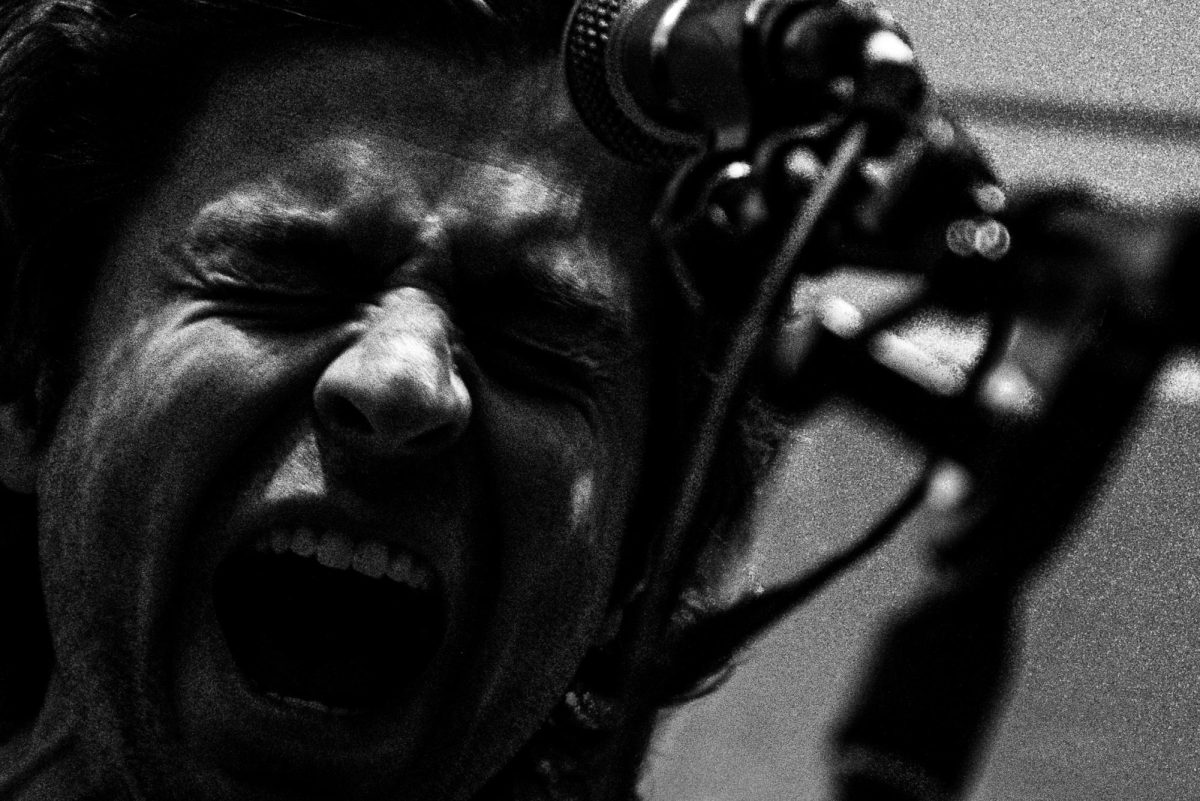Another Kind of Currency: The Quotations Used on Titus Andronicus’ "The Monitor"
November 12, 2014
 Courtesy of Stereogum.
Courtesy of Stereogum.
Well. Here it is. The column I’ve had ever since I thought about writing about music.
Titus Andronicus is a punk band from New Jersey that just so happened to release an absolutely perfect album in 2010 entitled The Monitor. I’ve always described it as something like “a concept album that uses Civil War themes to exemplify the trials and tribulations of a twentysomething self-proclaimed loser as he moves from New Jersey to Massachusetts and back.”
If you haven’t heard it, stop reading and go listen to it. Right now. Open a new tab, go to Spotify, download it, whatever you do to listen to music for the first time. Just go do it. Your life will be better because of it. It may have a long-ish run time (1 hour 5 minutes) but it’s worth it. Come back and read the column afterwards. Plus, the column may make more sense to you. However, there is absolutely no way I could fit everything about this album into what I can do in a week, so there may be a few about different aspects of this record. Trust me, it deserves it.
So, why am I choosing to write this column now as opposed to waiting until the end of the semester or next? Well, you can thank LIT-125-004H. My course, “The Great Books: Memorializing War,” is currently reading Walt Whitman’s Civil War Poetry and Prose and, this weekend, when I was in Katzen reading, I finished the poet’s “Vigil Strange I Kept on the Field One Night” and the ending stanza seemed oddly familiar to me:
And there and then and bathed by the rising sun, my son in his grave, in his rude-dug grave I deposited,
Ending my vigil strange with that, vigil of night and battlefield dim,
Vigil for boy of responding kisses, (never again on earth responding,)
Vigil for comrade swiftly slain, vigil I never forget, how as day brighten’d,
I rose from the chill ground and folded my soldier well in his blanket,
And buried him where he fell.
And then I realized where I’d heard it before. It’s one of the many spoken word sections that Titus Andronicus inserts into The Monitor . This one specifically closes “A Pot in Which To Piss.” Making this connection is what inspired this week’s column.
Today we’ll be looking at two such quotations (both from Abraham Lincoln) that particularly strike me as effective and analyzing them in their historical context as well as within the context of the concept record. We’ll start with the quote that opens the album:
From whence shall we expect the approach of danger?…Shall…some trans-Atlantic…giant step the earth and crush us at a blow? Never. All the armies of Europe and Asia…could not by force take a drink from the Ohio [River] or make a track on the Blue Ridge in the trial of a thousand years…No, if destruction be our lot we must ourselves be its author and finisher. As a nation of free men, we will live forever or die by suicide.
 Courtesy of WiseGeek.
Courtesy of WiseGeek.
This is an excerpt (although heavily edited) from one of Abraham Lincoln’s first political speeches, which he gave at the Young Men’s Lyceum in Springfield Illinois in 1838 long before the outbreak of the Civil War. In the entire speech and especially in this passage Lincoln is speaking of the United States’ standing as a superpower, but brings up how something (slavery) could cause a rift and bring the nation down from within. As we all know, this did end up almost happening. However, in the context of The Monitor, the band is extending the quote to apply to the individual—others don’t destroy us, we destroy ourselves. And this attitude sets the tone for what is to come throughout the entirety of the record.
The last quote on the record bookends the album quite nicely. Not only is it another Lincoln quote (from his first inaugural address) but it comments on the idea of “enemy” that has been present throughout the album, and especially in 14-minute epic “The Battle of Hampton Roads” that follows the quote:
I am loath to close. We are not enemies, but friends. We must not be enemies. Though passion may have strained it must not break the bonds of affection. The mystic chords of memory, stretching from…battlefield and patriot grave to every living heart and hearthstone all over this broad land, will yet swell the chorus of the Union, when again touched, as surely they will be, by the better angels of our nature.
The idea of “enemy” has been present across the entire record—the lyrics of “Titus Andronicus Forever (Theme from The Monitor)” and its reprise “…And Ever” consist almost entirely of “the enemy is everywhere.” The verse that closes “The Battle of Hampton Roads” (and the album) are incredibly thought-provoking in that they provide a new idea of the relationship rebels have to their enemy:
But my enemy has your name on my lips
As I go to sleep and I know what little I’ve known of peace
Yes, I’ve done to you what you’ve done to me
And I’d be nothing without you my darling, please don’t ever leave
Please don’t ever leave…
 Courtesy of The Palantir.
Courtesy of The Palantir.
While some may see these lines as singer Patrick Stickles’ personal jilted sentiments, I think his argument is that his enemy, the “establishment” that punks are continually rebelling against, however shitty it may seem, allows for him to exist in the manner he does. It truly does make sense, but one wonders if the establishment would be extremely left-wing, would punk music consist of right-wing views? Would albums be odes to Adam Smith and free-market capitalism? Either way, what it comes down to is that as long as there is an establishment, there will be people that disagree with it and wish to rebel against it (and then identify themselves by. It is human nature—the same human nature that serves as our own personal downfall.













